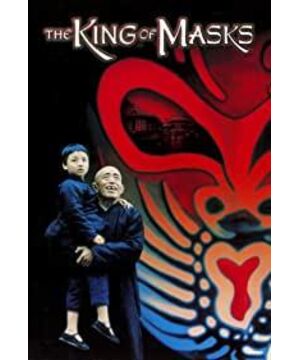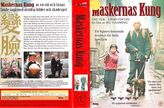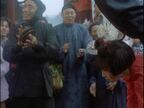When I was writing a comment, I was swiping for the second time. When I heard this sentence, I felt it was unexpectedly appropriate.
I don't quite understand the deep meaning of this movie, so I'll probably talk about my intuitive feeling.
Overall, the narrative of the entire film is slow and comfortable. The movie can be said to be a bright line and a dark line. The bright line is mainly about the face-changing king begging for his grandson, and the dark line is everything the dog baby has done for the face-changing king. If we say that we divide the film into the beginning development climax, the climax I see is when the face-changing king said in prison, when I cut it off. After experiencing great ups and downs, the face-changing king finally abandoned the secular concept and taught the dog to change his face, so as to achieve a happy ending. Craftsmanship is inherited by someone; in distress, someone helps; I don't quite understand where this kind of righteousness comes from, I see a kind of mutual sympathy.
Let me talk about some details that I find interesting, first of all, the name "Living Guanyin". At first I thought that Living Guanyin might be a code name, maybe it was Guanyin singing well or what, but I didn't think deeply about it. Maybe because I have a habit of watching movies, I don't like to think too much while watching, so after watching it, when I recall it, I think "Living Guanyin" is very appropriate. A life is to cherish the craftsmanship. A gentleman does not take people's favor. Although Boss Liang wants to learn the craft of the face-changing king, he does not force it. Second, live with loyalty in the arena. There is a scene in the movie in which Guanyin attains the Tao. In the play, Guanyin and Boss Liang are the same in some aspects. I think Boss Liang should also "get the Tao".
The second detail that I find interesting is "Godsend". This is interesting I think the word is very ambiguous. At the beginning I understood that it was a gift from God, and subjectively I thought it was a good thing, but I forgot that this gift is not necessarily a blessing, it could also be a curse. As the so-called "blessings and misfortunes lie down", on the surface, it seems that they have a grandson, but in fact, they invite disasters.
The third detail is the question I have been thinking about, why a monkey should be called a general. I find it a bit ironic, but it's an intuitive feeling. I prefer to set off against the generals behind.
There is only one regret after reading it, I watched it too late.
View more about The King of Masks reviews








